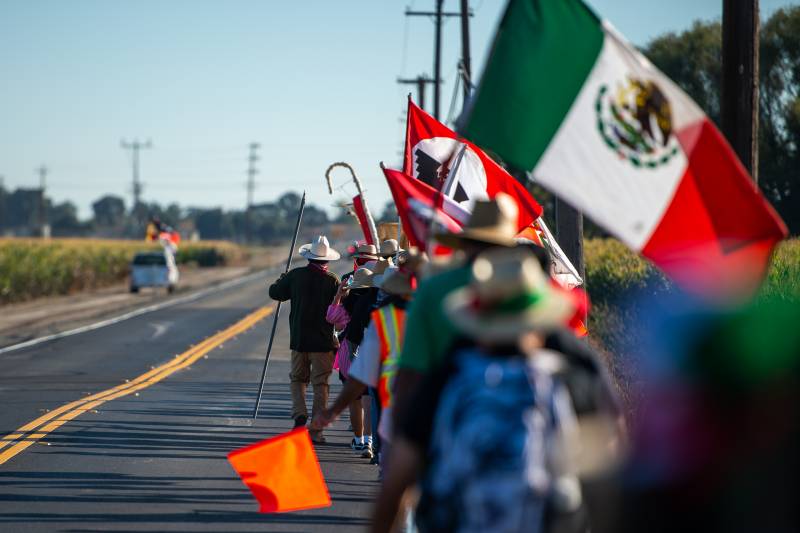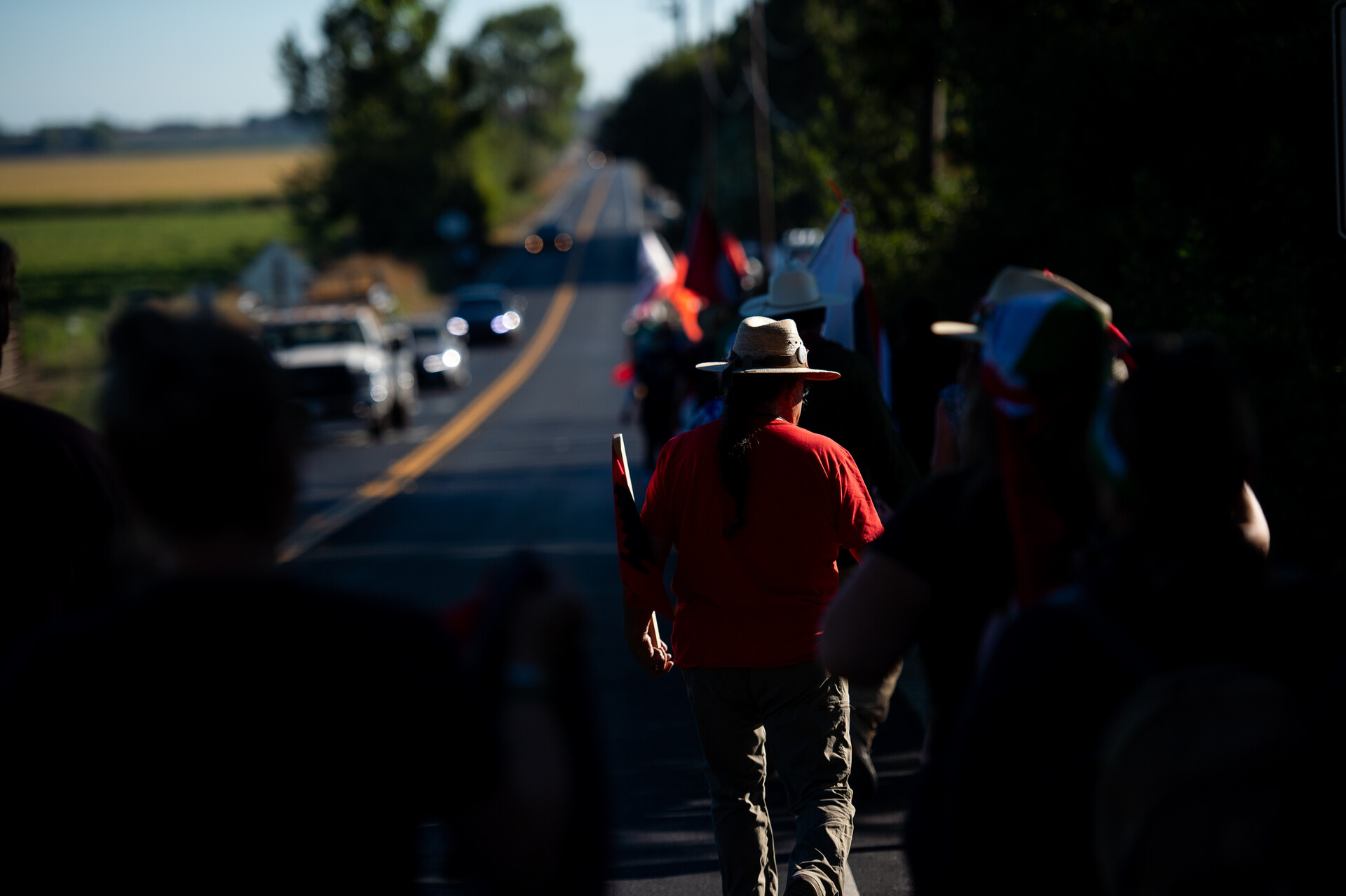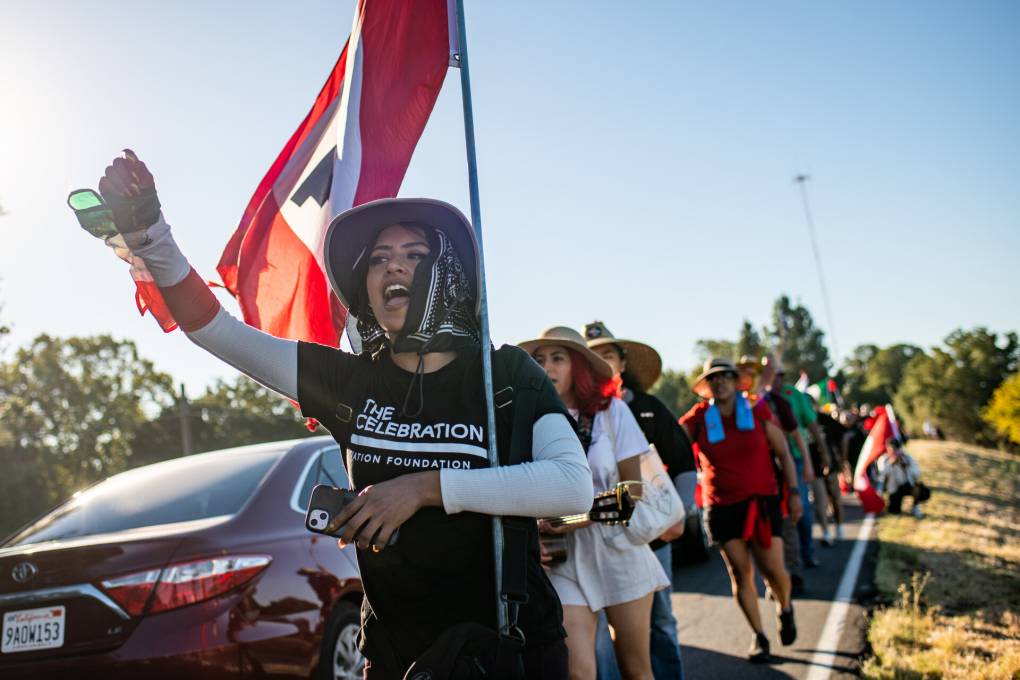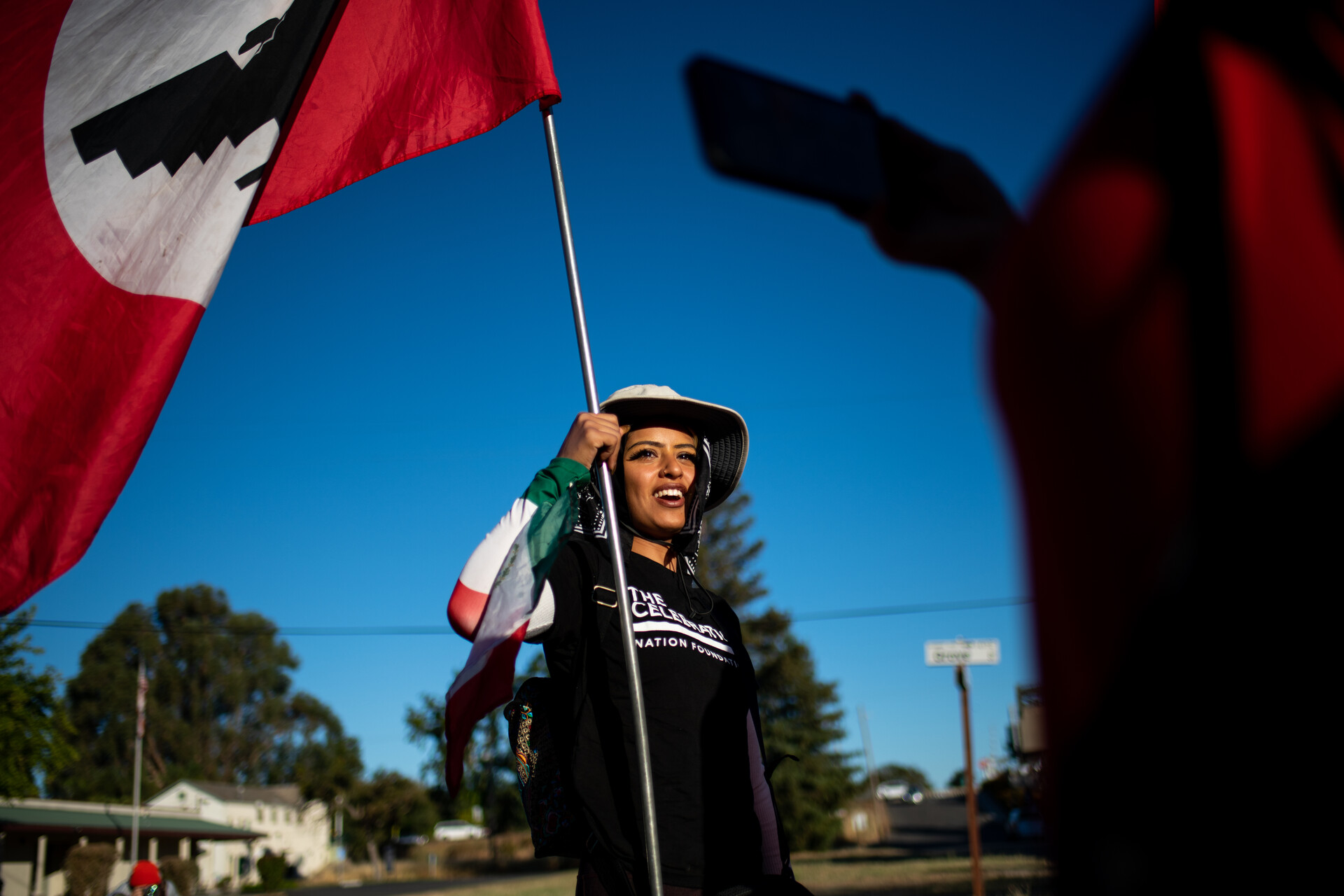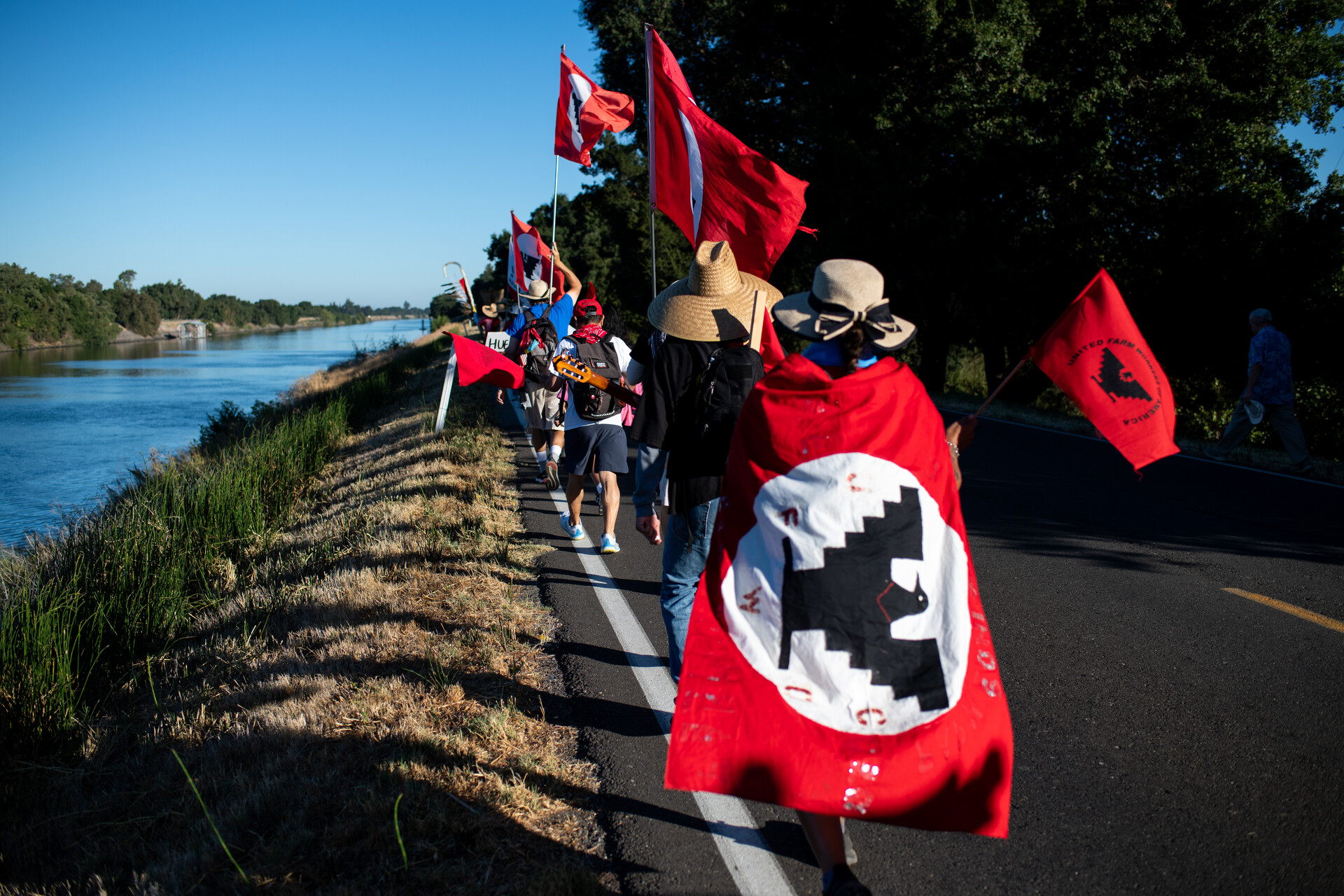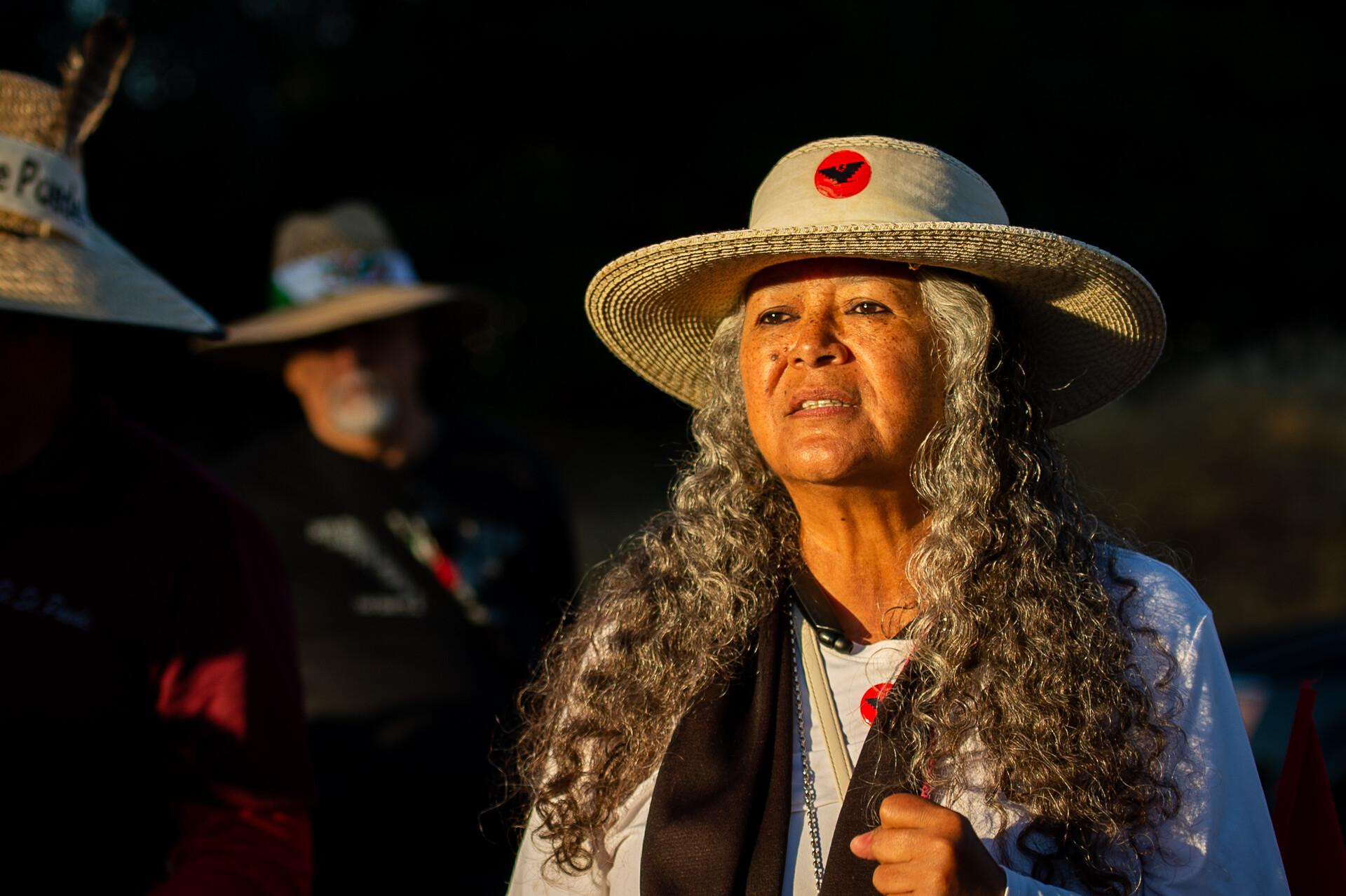Update, 6 p.m. Friday: A broadly smiling California Gov. Gavin Newsom joined about two dozen jubilant, cheering farmworkers camped outside the state Capitol on Wednesday, September 28, to sign a measure aimed at helping farmworkers unionize.
Newsom initially announced his intention to veto the bill — one of the most contentious bills before the governor this year — but reversed course after President Joe Biden and Vice President Kamala Harris publicly backed it, pinning him in a difficult political position.
Newsom, however, approved the bill only after he, the United Farm Workers and the California Labor Federation agreed on clarifying language to be considered during next year’s legislative session to address his concerns around implementation and voting integrity.
The new law gives California farmworkers, who harvest much of the nation’s fruit and vegetables, new ways to vote in union elections beyond physical polling places on farm property. Proponents say that will help protect workers from union busting and other intimidation, while many farm owners say such a system lacks necessary safeguards to prevent fraud.
The agreement includes a cap on the number of unionization petitions over the next five years and will allow state regulators to better protect worker confidentiality and safety, Newsom's office said. It drops the option for workers to unionize through mail-in voting — as the UFW had pushed for — but allows for a “card check” election process, offering farmworkers a chance to vote from home in an effort to limit the chances of employer intimidation.
Original post, August 26: Thousands of farmworkers and their allies finished a march to California’s Capitol in Sacramento on Friday, completing the last leg of a 24-day journey that began 350 miles away in Delano. The United Farm Workers union designed the march to pressure Gov. Gavin Newsom to sign a bill that would give farmworkers the option to vote by mail in union elections, mirroring the way Californians vote for candidates for political office.
As state law currently stands, farmworkers must vote in union elections in person on sites owned by the growers that employ them.
“That creates a lot of intimidation. Many employers have security there, all the supervisors are there, and that doesn’t promote participation,” said United Farm Workers President Teresa Romero in an interview with KQED.
The Agricultural Labor Relations Voting Choice Act, Assembly Bill 2183, would change that in-person voting requirement and would also prohibit growers from encouraging or discouraging union membership. Under the new bill, growers could also face fines of up to $25,000 for certain specific labor rights violations, and up to $10,000 for general labor rights violations.
But in a statement released hours before farmworkers were set to march the last mile to the Capitol, Newsom said he would not support the bill as it currently stands. The governor's office told The Fresno Bee that Newsom remains open to negotiations.
Veronica Mota, one of the 19 farmworkers who braved triple-digit temperatures for the entire 24-day march, said she was sad to hear that news, but that she remained motivated.
“This is not going to take away my motivation to continue pushing for what is right,” Mota told KQED. “It doesn’t end here. It starts here.”
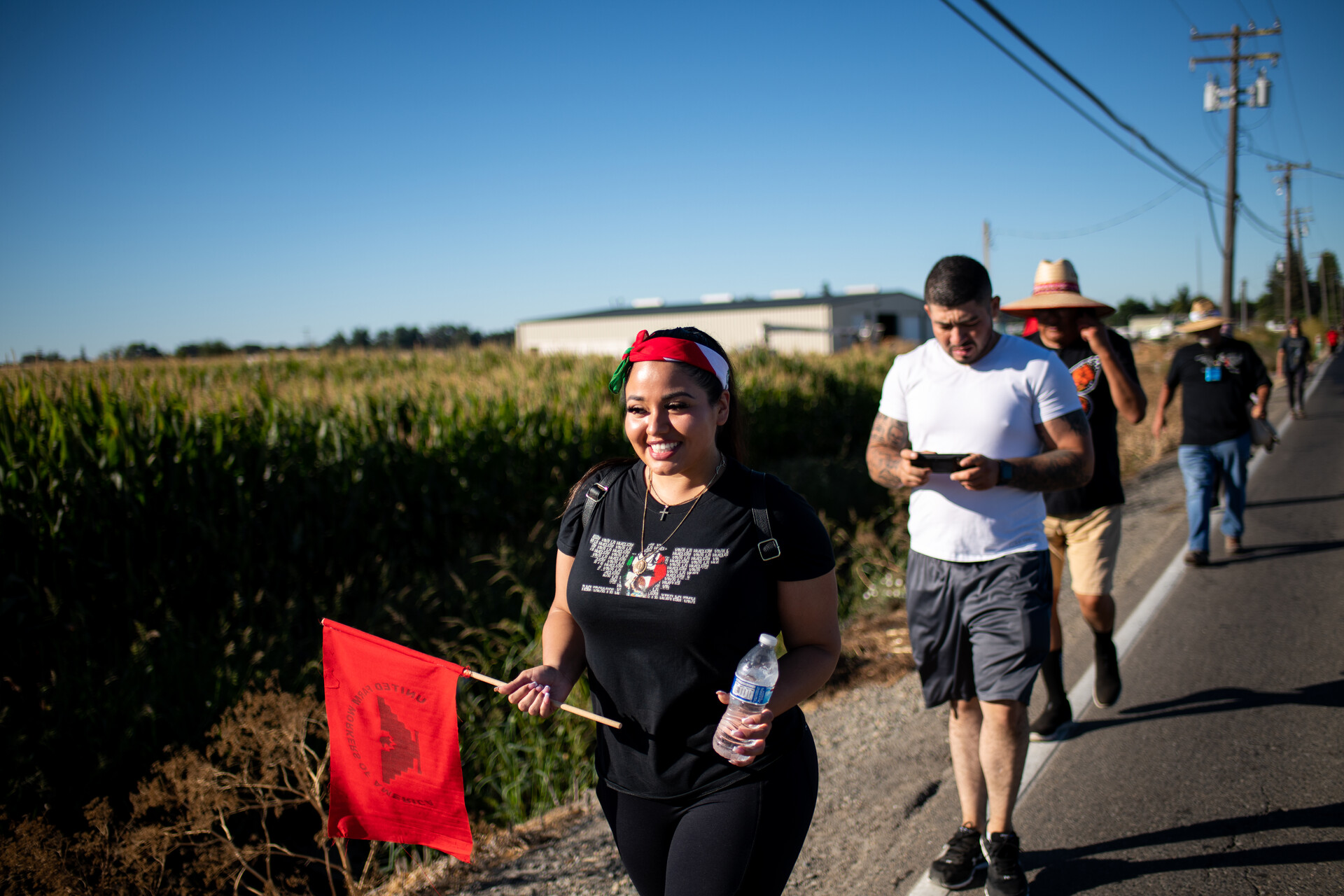
“Fifty-six years ago, César Chavez did this march to bring awareness to the issues of farmworkers,” Romero said.
“We thought it was important enough to recreate that march, so people and the consumers understand that farmworkers still need the rights that other workers have. We all eat because of their hard work.”
